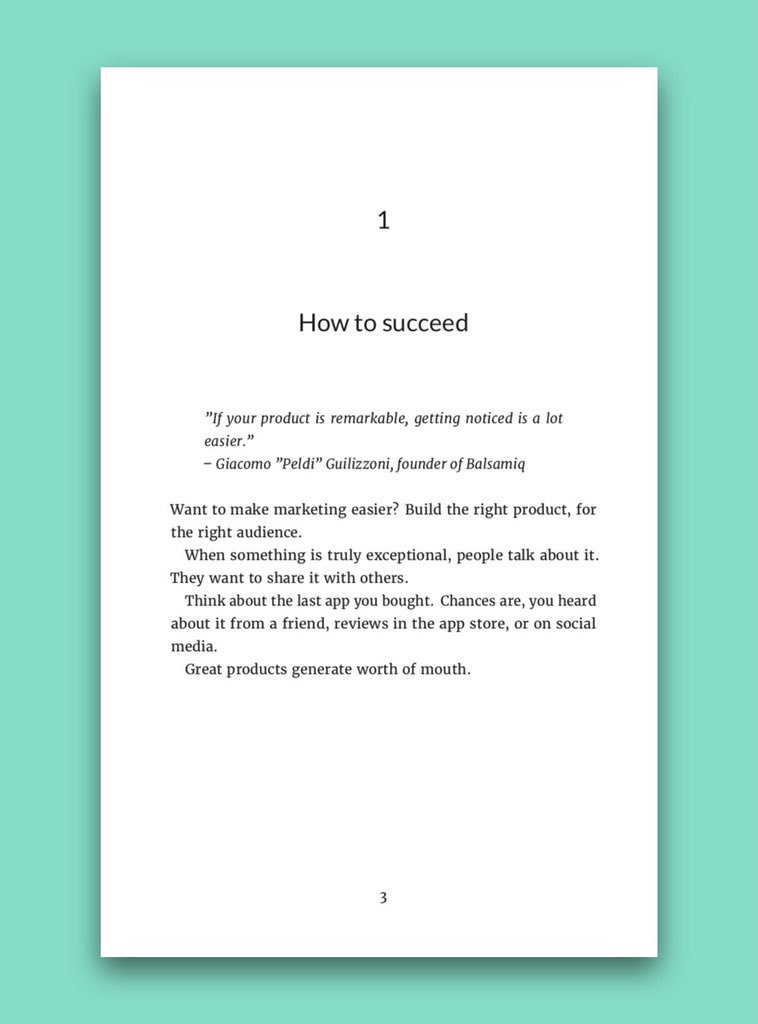2020... what a year.
I just put the finishing touches on my Annual Review.
Here are 30 lessons I learned about myself and the world across five areas:
• Health
• Wealth
• Relationships
• Online creativity
• Personal operations
🧵👇🏼
1. Health starts with removal, not addition.
This year I officially hit 100 lbs lost. And looking back, it wasn't what I started doing, but what I stopped doing that got me there.
Fewer carbs, fewer beers, fewer hours sitting, these things add up.
The most "disciplined" people actually are the most undisciplined.
But they recognize and accept this.
So they set up constraints that prevent them from having to rely on self-control and willpower.
If you can't sit comfortably alone with the voice in your head, no amount of "success" will change that.
12 weeks alone in NYC during peak-COVID forced me to learn this lesson.
The times I felt best: eating healthily and reading philosophy.
The times I felt worst: eating horribly and doom scrolling.
This is the closest thing you can get to primal living in the modern world.
Start the day with a walk and watch your energy, mood, and creativity soar.
These will be different for everyone.
But start looking for the fundamentals of what makes you feel good.
Then find a way to do them every day.
7. Everything changes when you stop trying to save and start trying to earn.
My goals to start 2020 all started with "save X every month."
But you can only take expenses so low.
Which has higher ROI? An hour spent budgeting or an hour spent learning copywriting?
If you view money, opportunity, or success as scarce, it will avoid you.
The world, especially the internet-enabled world, is full of opportunity.
Set aside X amount of money that you will invest in these three areas every month.
Your health, time, and energy are assets with high ROI.
Your cash flow will dominate your net worth gains in your early years.
This one deserves a longer post, but the last place to be with your money when you're young is in cash.
The S&P 500 bottomed the day there was a five-block line outside of Trader Joes in NYC.
And people have been calling for a top ever since, but it can and will keep going.
12. Thoughtfully invest in communities to form strong relationships.
Online communities are like a curated resource for like-minded people.
The price of entry is peanuts to the long-term benefits of the relationships you will form.
You can meet anyone in the world online.
But you have to put yourself out there and start sharing your ideas and worldview.
As I shared more online, I begin to meet incredible people. I set a simple goal to meet one new person every week, but most weeks I ended up with more.
Now, these people are some of my best friends.
I can't wait to enjoy dinners with my closest friends again.
Especially with how many smart people I've met this year, those conversations are going to be epic.
@david_perell introduced me to this idea and now I think about it every day.
Find the 10 people that push you forward, make you more creative, work in different domains, and see the world with a unique lens.
Then, double down on them.
17. Writing online is the highest leverage habit in human history.
I can trace everything good that happened to me this year back to writing.
But writing and *publishing online* brought the most amount of good.
I spent months inconsistently sharing into the void.
It was only when I committed to tweeting every day, writing four threads every week, and producing consistently that things accelerated.
I got the chance to meet and interact with many people who were ~a year or two ahead of me.
The most valuable question I asked: what do you wish you knew a year ago?
In the beginning, you need to share way more ideas than you feel comfortable sharing.
Make noise, and listen for signal from both yourself and others.
In the age of capturing attention, the ability to create media assets is more valuable than coding.
My prediction is we will see "content creator" boot camps similar to coding bootcamps in the next few years.
Humans cannot comprehend exponential growth in real-time.
Going from 150 to 300 followers is not +150, it's +100%.
Focus on your doubling time. If it's constant, you're growing exponentially.
If it's accelerating: look out.
The closest thing you get is the turn of a New Year.
That's when I started writing my newsletter, one year ago.
But I wish I started six months before that, before I felt "ready."
24. Become obsessed with finding leverage and efficiency.
The first principles of my productivity are leverage and efficiency.
I want to store my time finite time and energy into infinite assets.
With everything else, I want to be ruthlessly efficient.
Looking back at my goals for 2020 made me laugh.
It's impossible to see one year into the future.
So this year, I'm focusing on 12-week goals and systems.
Much is made about mental models and cognitive biases.
But applying them isn't easy. In looking back at my decisions, the most-common bias is sunk costs bias.
So now I look for it everywhere.
Ask "why" more often with any of your systems, goals, or habits.
Throughout the year I found myself doing things week after week that were inefficient, but never stopped to ask why.
This was the best framework I learned in 2021 (h/t @shaanpuri)
• Know where you are (brutal honesty.)
• Know where you want to be (long-term visioning.)
• Know the next step you need to take (immediate clarity.)
Action, not planning, creates clarity.
I took on a lot this year.
I produced most consistently when I invested in creating systems and designing my environment to reduce friction.
The smoother my systems, the faster I could ship.
This is a reminder to myself.
So I'm reflecting on one question to end 2020: what if I took every goal I'm about to set and 10x'd it? Would that change how I spend my time, energy, and attention?
Every week I share thoughts and links on the growth of people, businesses, and systems.
Join 1,718 others 👇🏽
https://t.co/0z11pkbZp3
2020... what a year.
— Dickie Bush \U0001f4ca (@dickiebush) December 30, 2020
I just put the finishing touches on my Annual Review.
Here are 30 lessons I learned about myself and the world across five areas:
\u2022\xa0Health
\u2022\xa0Wealth
\u2022 Relationships
\u2022\xa0Online creativity
\u2022\xa0Personal operations
\U0001f9f5\U0001f447\U0001f3fc
More from Dickie Bush 📊
(For Spotify, YouTube, AND Apple Music):
These playlists have helped me write every morning for 700 days in a row.
And they cover 7 different genres (so there's something for everyone):
• LoFi
• Piano
• Upbeat focus
• Melodic house
• Ambient space
• Static brown noise
• Movie soundtracks
Let's dive in:
Like the relaxing beats of a coffee shop?
LoFi is your best bet.
Apple Music: https://t.co/yOTrYwyhR0
Spotify: https://t.co/BdnAOCvD7J
YouTube:
Enjoy a peaceful piano for reading and writing?
These are my go-to.
Apple Music: https://t.co/3i1r7fWEMD
Spotify: https://t.co/3i1r7fWEMD
YouTube:
Like the ambient vibe that feels like you're floating through space?
I got you.
Apple Music: https://t.co/MnZILlhyLM
Spotify: https://t.co/UhsJ5lyYIv
YouTube:
In Atomic Habits, James lays out the Four Laws of Behavior Change.
1. Make it obvious
2. Make it attractive
3. Make it easy
4. Make it satisfying
Here's how to leverage them to build a daily writing habit (🧵✍🏼):
Habits are made up of a four-part feedback loop:
1. Cue
2. Craving
3. Response
4. Reward
Building a habit means intentionally designing each part of this feedback loop.
1. Make it obvious
2. Make it attractive
3. Make it easy
4. Make it
The Habit Loop
— James Clear (@JamesClear) November 5, 2018
To better understand how a habit works and how to improve it, let's divide a habit into four stages.
1. Cue
2. Craving
3. Response
4. Reward
These four stages create a feedback loop. Your mind is endlessly running this loop and learning from its experiences. pic.twitter.com/sURCbTPp3N
Before you start to build a writing habit, it's important to understand the real goal.
Your goal isn't to start writing.
Your goal is to become a writer.
Why the subtle difference?
Because behavior change is identity change.
We don't stick to habits that aren't aligned with our identity.
Luckily, habits that align with your identity are easy to stick to.
Every action you take is a vote for the type of person you want to become.
So to become a writer, we have to consistently cast "writer votes."
Step 1: Make it obvious
Time and location are the most important habit cues.
You MUST leverage them to build your writing habit.
Every great writer has their sacred hours.
This thread can help you find
Sacred Hours...
— Dickie Bush \U0001f6a2 (@dickiebush) December 2, 2020
A life-changing concept.
What are they and how to find yours: (thread) pic.twitter.com/AHSMqwtTb0
This is one of the many things I learned diving into everything @jamesclear has published on creativity and building a writing habit.
Here's a thread of his best articles, tweets, and podcast appearances:
1/ Reasons @JamesClear writes
• Write for yourself
• Write to learn more
• Write to build a business
• Write to clarify your thoughts
But most importantly, writing is leadership at scale.
And it will carry your ideas further than
2/ Five steps to mastering the creative process
1) Give yourself permission to create junk
2) Create on a schedule
3) Finishing something
4) Stop judging your own work
5) Hold yourself accountable
I can't overstate the value of this resource 👇🏼
3/ How to overcome others (and yourself) judging your writing
• The first obstacle: overcoming your own judgment
• But once you start publishing, you will meet external judgment.
His advice comes from Mario Andretti:
Focus on the road, not the
4/ Three tips for getting started as a writer:
1) Publish on a schedule
2) Share your writing publicly
3) Write about what fascinates
3 tips for getting started as a writer
— James Clear (@JamesClear) March 20, 2019
1. Publish on a schedule. Consistency develops ability.
2. Share your writing publicly. Writing is a magnet. It attracts like-minded people.
3. Write about what fascinates you. You don't need to be an expert. Curiosity leads to expertise.
But 90% of that growth came from 9 threads - which on their own generated 20,000,000 views.
So here's a recap of those 9 threads (and what they can help you with):
I studied math at Princeton - mostly because I hated writing.
But colleges do a horrendous job teaching you to write.
So I spent 200 hours learning to write on my own.
Then, I summarized the frameworks I
College completely failed in teaching me how to write.
— Dickie Bush \U0001f6a2 (@dickiebush) September 22, 2021
So I spent over 500 hours studying legendary authors and copywriters.
Then, I distilled what I learned into 6 simple frameworks.
But unlike college, these won't cost you $120,000.
Here they are for free:
If you're new to Twitter, it can be overwhelming.
But even people who use it every day aren't using its best features.
So here are 10 of them you can start using today to 10x your experience:
If you use it right, Twitter is the most powerful platform in the world.
— Dickie Bush \U0001f6a2 (@dickiebush) March 30, 2021
But Twitter does a horrible job of showing you its advanced features.
Here are 10 of them you probably know nothing about:
Whether you're a:
• Writer
• Creator
• Student
• Employee
• Entrepreneur
You are in the business of storytelling.
So here's a storytelling crash course from the world's most creative
The most creative company of the last 30 years:
— Dickie Bush \U0001f6a2 (@dickiebush) October 28, 2021
Pixar.
Back in 2011, Pixar storyboard artist Emma Coats shared their "22 Rules For Storytelling."
And the rules are a must-read for writers, entrepreneurs, and anyone who wants to tell captivating stories.
Here's the breakdown: pic.twitter.com/eUqUpvvbDX
If you spend any time on Twitter, you've seen the words "Web 3."
But whether you're a complete beginner or fully crypto-pilled, these quotes will help you learn where the world is
20 quotes on Crypto, Web 3, NFTs, and decentralization from Tim Ferriss, Naval Ravikant, and Chris Dixon.
— Dickie Bush \U0001f6a2 (@dickiebush) October 30, 2021
(For those who want a crash course in where the future is heading):
More from Life
Like company moats, your personal moat should be a competitive advantage that is not only durable—it should also compound over time.
Characteristics of a personal moat below:
I'm increasingly interested in the idea of "personal moats" in the context of careers.
— Erik Torenberg (@eriktorenberg) November 22, 2018
Moats should be:
- Hard to learn and hard to do (but perhaps easier for you)
- Skills that are rare and valuable
- Legible
- Compounding over time
- Unique to your own talents & interests https://t.co/bB3k1YcH5b
2/ Like a company moat, you want to build career capital while you sleep.
As Andrew Chen noted:
People talk about \u201cpassive income\u201d a lot but not about \u201cpassive social capital\u201d or \u201cpassive networking\u201d or \u201cpassive knowledge gaining\u201d but that\u2019s what you can architect if you have a thing and it grows over time without intensive constant effort to sustain it
— Andrew Chen (@andrewchen) November 22, 2018
3/ You don’t want to build a competitive advantage that is fleeting or that will get commoditized
Things that might get commoditized over time (some longer than
Things that look like moats but likely aren\u2019t or may fade:
— Erik Torenberg (@eriktorenberg) November 22, 2018
- Proprietary networks
- Being something other than one of the best at any tournament style-game
- Many "awards"
- Twitter followers or general reach without "respect"
- Anything that depends on information asymmetry https://t.co/abjxesVIh9
4/ Before the arrival of recorded music, what used to be scarce was the actual music itself — required an in-person artist.
After recorded music, the music itself became abundant and what became scarce was curation, distribution, and self space.
5/ Similarly, in careers, what used to be (more) scarce were things like ideas, money, and exclusive relationships.
In the internet economy, what has become scarce are things like specific knowledge, rare & valuable skills, and great reputations.
You May Also Like
Always. No, your company is not an exception.
A tactic I don’t appreciate at all because of how unfairly it penalizes low-leverage, junior employees, and those loyal enough not to question it, but that’s negotiation for you after all. Weaponized information asymmetry.
Listen to Aditya
"we don't negotiate salaries" really means "we'd prefer to negotiate massive signing bonuses and equity grants, but we'll negotiate salary if you REALLY insist" https://t.co/80k7nWAMoK
— Aditya Mukerjee, the Otterrific \U0001f3f3\ufe0f\u200d\U0001f308 (@chimeracoder) December 4, 2018
And by the way, you should never be worried that an offer would be withdrawn if you politely negotiate.
I have seen this happen *extremely* rarely, mostly to women, and anyway is a giant red flag. It suggests you probably didn’t want to work there.
You wish there was no negotiating so it would all be more fair? I feel you, but it’s not happening.
Instead, negotiate hard, use your privilege, and then go and share numbers with your underrepresented and underpaid colleagues. […]


















